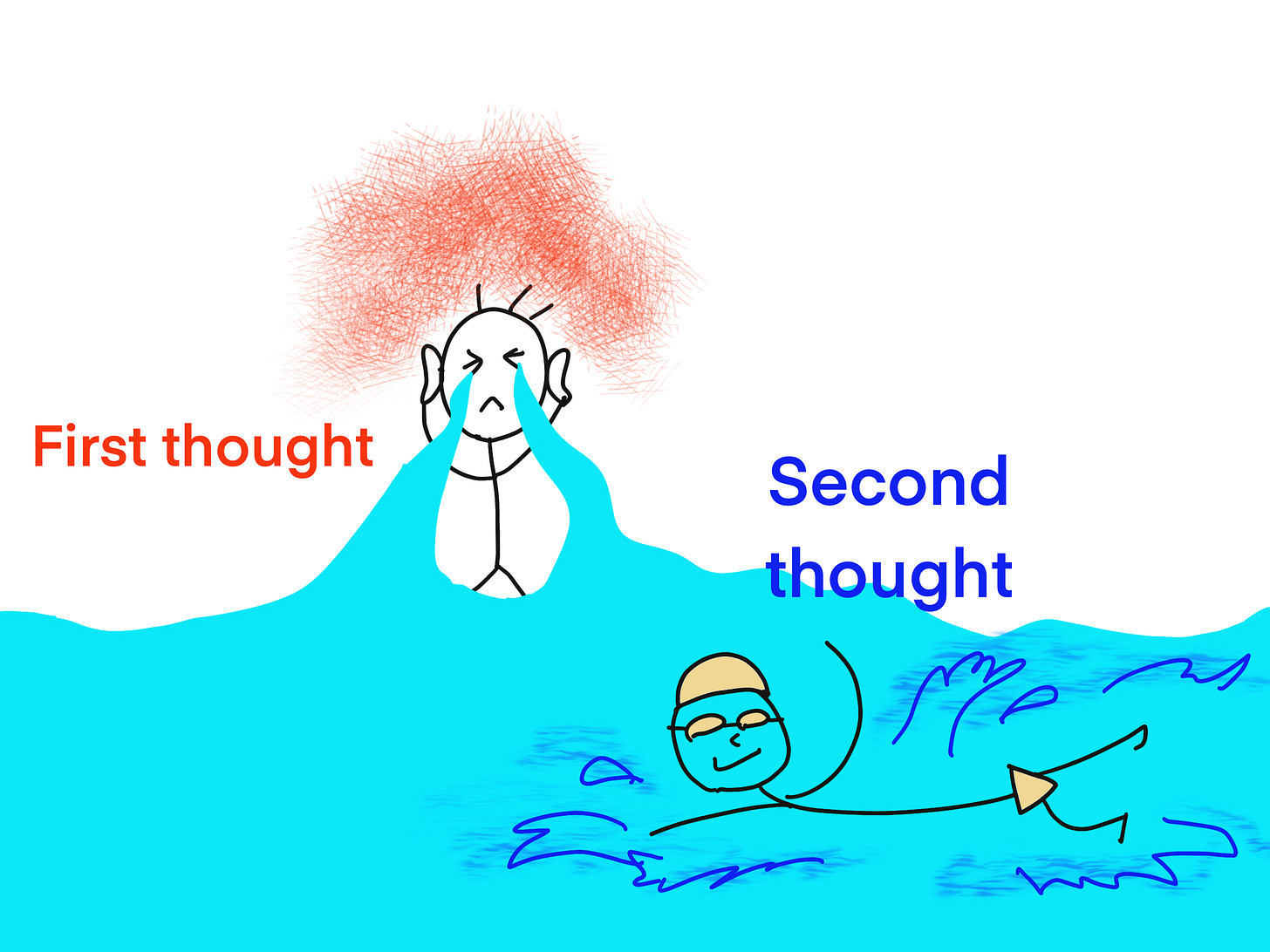Thanks to my relationship simulation practice, I started to give myself time for a “second thought.“
As a proactive and analytical individual, I typically analyze and solve problems swiftly without any procrastination whenever I encounter them. I have always taken great pride in this courage and action-oriented personality.
However, since undergoing relationship simulation training, which emphasizes patience, I have learned to sit with my problems for a longer time. This process allows for the emergence of additional thoughts, which I refer to as my "second thoughts," differing from my initial problem-solving instincts.
How does a second thought differ from the first thought?
For me…it’s usually a layer of funny interpretation…
Weirdo friends, I’m not joking. All my emails that I waited for a few days to write before I sent them back to my ex are hella funny and creative. This is the email when we tried to befriend again:
"Although I still tend to be calculative, I am willing to make exceptions and try not to throw everything away on this rare occasion. After all, you are also quite unlucky, so I am giving you a guide to Taiwan as a gift. If you keep telling everyone your ex is a crying baby, it wouldn't be good. We need to refresh some memories, and a Taiwanese cultural guide seems like a better impression."
My writing tweaked all the bad memories into funny ones. I joked about myself and was open about it.
Second thoughts allow me to feel comfortable with initially uncomfortable stimuli (e.g., her email). So, I have more mental capacity to play around with it and deliver an entertaining response. Without a second thought, the core message might be the same, but it would be pretty direct and plain, without the fun intricacy, like:
Yes. We can try to be friends, even though I don’t really like it that much. Let me know if you have anything about Taiwan you wanted to know.
A second thought is a relaxing, witty, funny iteration of the first thought because it helps me accept more and often frees me from whatever social norms or biological reactions (fight vs. flight) are ingrained in me.
How is a second thought different from overthinking?
If I let my thoughts ferment even longer, how might they evolve? Will they turn into overthinking?
Usually, when I contemplate something excessively, it becomes overthinking, and my judgment becomes distorted. I struggle to maintain a good grasp of this balance. For instance, I know from my research experience that constant thinking thinking thinking can lead me into niche problems and cause me to lose sight of the bigger picture. However, at other times, delving deeply into a question can yield results more valuable than ever before.
So, the answer is: "I don’t know."
This will be my next area of practice in relationship simulation. What will my third and fourth thoughts look like?
I hypothesize that continuous thinking might distort my thoughts, but by allowing some incubation time and not fixating on them, I might reach new heights in my life.


